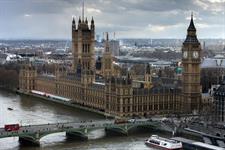The government’s withdrawal of funds from an interfaith charity sets a “terrible precedent” that should concern the whole voluntary sector, charity leaders have warned.
Sector leaders have warned of risks to charity governance after the government confirmed that it would not follow through on its funding offer to the Inter Faith Network for the UK due to a trustee’s ties with a Muslim umbrella organisation.
The move is expected to trigger the closure of the charity, which works with national faith community groups to advance understandings of different religious groups. It is due to release a statement about its plans later today.
The Department for Levelling Up, Housing and Communities offered £155,000 to the charity in July.
But a government spokesperson confirmed today that it had withdrawn the funding offer after a Muslim Council of Britain member was appointed to the IFN’s core governance structure last year.
The spokesperson added that the government has “held a consistent policy of non-engagement with the Muslim Council of Britain”.
They said: “Interfaith work is hugely important but that does not require us to use taxpayer money in a way that legitimises the influence of organisations such as the MCB.”
“The Inter Faith Network cannot rely on continuous taxpayer funding. We regularly remind our partners, including the IFN, of the importance of developing sustainable funding arrangements – rather than relying on taxpayers’ money, which can never be guaranteed.”
Sector leaders have warned that the move to withdraw funding based on a trustee’s affiliations posed concerns for the entire voluntary sector.
Debra Allcock Tyler, chief executive of the training and publishing charity the Directory of Social Change, said: “Regardless of the many risks and problems around state funding, this sets a terrible precedent which should concern the whole charity sector.
“Basically that a funder or person in power can effectively close a charity because for some unclear or undisclosed reason they don’t like a particular trustee, or that trustee’s other affiliations, which are apart from the charity concerned.”
She added that the move “amounts to direct interference in the charity’s governance, and in this case the likely dissolution of the whole organisation, in the absence of any known wrongdoing or due process regarding a single trustee”.
Jane Ide, chief executive of the charity leaders body Acevo, said that while funders had the right to make decisions about where they invest funding and the conditions they might attach, those conditions must be “clear and transparent from the start and funding commitments once made should be honoured, other than in the light of specific and immediate concerns arising from appropriate due diligence”.
She said: “Without transparency there can be no debate around the reasoning behind the conditions attached, nor can trustee boards make effective decisions about the governance risks attached to specific funding applications.
“Without confidence that funding commitments once made will be honoured, the trust between funder and funded breaks down and charities are left unable to make sensible and timely plans for the delivery of their work, or indeed their own survival.”
Sarah Vibert, chief executive of the National Council for Voluntary Organisations, added: “We know that specialist infrastructure organisations can offer expertise and skills which build and empower certain communities, and without them there can be significant gaps.
“Unclear decisions can also damage trust at a critical time when the government and the voluntary sector need to work together to address societal issues.”
A number of MPs also urged the government to reconsider its decision to withdraw funding, with Liz Twist, the Labour MP for Blaydon, saying: “Inter-faith and multi-faith dialogue are absolutely essential components of society.
“Given recent events – the war and violence in Gaza – that is more important than ever.”
Responding to ministers’ calls to reconsider the decision, Felicity Buchan, parliamentary under-secretary of state at the DLUHC, said: “Very proper consideration went into this decision after we had heard representations from the Inter Faith Network. The decision on government funding has now been made.”
